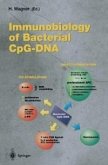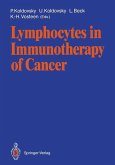Major scientific advances in molecular and clinical immunology have produced tremendous growth in our understanding of how cancer is recognized by the immune system, as well as in our ability to control and modulate that recognition. In Immunotherapy of Cancer, expert bench and clinical scientists join forces to concurrently review both the state of the art in tumor immunology and its clinical translation into promising practical treatments. The authors explain in each chapter the scientific basis behind such therapeutic agents as monoclonal antibodies, cytokines, vaccines, and T-cells, and illustrate their clinical manipulation to combat cancer. Additional chapters address statistical analysis-both of clinical trials and assay evaluations-methods for the discovery of antigens, adoptive T-cell therapy, and adaptive and innate immunity. The challenges in clinical trial design, the need for biomarkers of response-such as novel imaging techniques and immunological monitoring-and the new advances and directions in cancer immunotherapy are also fully examined. Comprehensive and cutting-edge, Immunotherapy of Cancer offers immunologists an exhaustive and authoritative survey of cancer immunotherapy, as well as providing a springboard for applying the most important findings in tumor immunology to any basic laboratory program or clinical oncology practice.
Dieser Download kann aus rechtlichen Gründen nur mit Rechnungsadresse in A, B, BG, CY, CZ, D, DK, EW, E, FIN, F, GR, HR, H, IRL, I, LT, L, LR, M, NL, PL, P, R, S, SLO, SK ausgeliefert werden.









